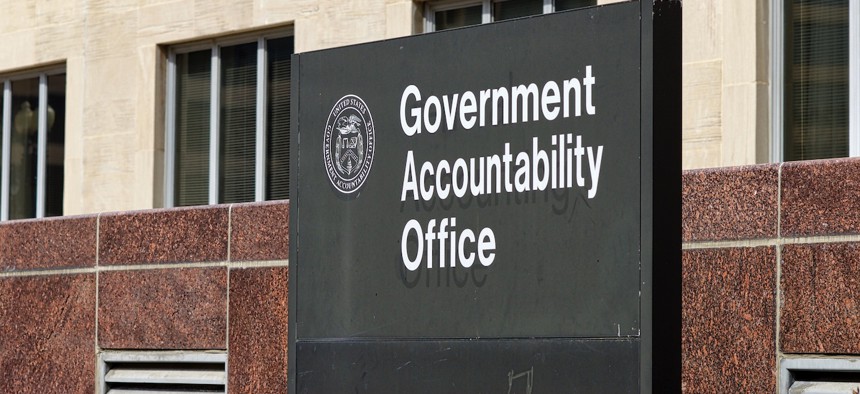
Last week GAO found that the Trump administration had violated federal spending laws by withholding money appropriated by Congress. John M. Chase/Getty Images
White House says it will cooperate with top watchdog only when it does not ‘unduly burden’ Trump’s agenda
The Trump administration is elevating its feud with the Government Accountability Office, which recently found the administration is violating federal spending laws.
The White House on Friday told the government’s top watchdog it will only cooperate when doing so does not impede its ability to carry out President Trump’s agenda, reigniting a feud that traces back to the president’s first term in office.
The letter, from Office of Management and Budget General Counsel Mark Paoletta to the Government Accountability Office, follows the watchdog last week finding the Trump administration violated federal spending laws by withholding money appropriated by Congress. Paoletta denied that the administration has flouted the Impoundment Control Act, the law that prohibits the executive branch from withholding congressionally appropriated funds for policy reasons.
The OMB official criticized GAO for asking too many questions of the White House, including the dozens of probes the watchdog has opened into potential illegal impoundments. Paoletta noted that GAO has around 50 “open engagements” with the budget office.
“Not only does GAO exceed its statutory authority when it unhelpfully injects itself into an agency’s implementation of a program, GAO also hampers the Executive Branch’s ability to carry out its statutory mandates,” Paoletta said in the letter, which was first reported by The Washington Post. He added the legislative branch agency often attempts to substitute its “policy views for those of the president.”
He called GAO’s requests "voluminous, burdensome and inappropriately invasive,” suggesting the approach was “unsustainable.” Paoletta equated GAO’s investigative work to an “invasion by an arm of Congress” into the internal deliberations of the executive branch.
“In light of these concerns, OMB will continue to cooperate with GAO engagements but will do so in a manner that ensures that the burdens of such engagements do not unduly impede OMB’s ability to implement the President’s agenda and comply with OMB’s other legal duties,” Paoletta said.
A spokesperson for GAO took issue with Paoletta's characterization and said the agency is seeking to maintain a good relationship with the executive branch. Most of its work is focused on bipartisan congressional requests, the spokesperson added, and only a small fraction of that involves OMB.
“GAO disagrees with the assertions in OMB’s letter," the spokesperson said. "GAO’s mission is to support Congress in carrying out its constitutional responsibilities. This includes our statutory responsibilities under the Impoundment Control Act to defend Congress’ institutional powers to appropriate funds or amend previously enacted appropriations."
GAO last week found the Trump administration violated the Impoundment Control Act when the Transportation Department withheld funding appropriated in the 2021 Infrastructure Investment and Jobs Act. The funding at issue involved $5 billion in grants to be distributed to states and localities to help them deploy electric vehicle charging infrastructure.
“DOT is not authorized to withhold these funds from expenditure and DOT must continue to carry out the statutory requirements of the program,” GAO said.
GAO now has the option to file a lawsuit against the Trump administration for failing to comply with the impoundment law. Gene Dadaro, the agency’s chief, previously told lawmakers he was building a case in case that option became necessary. The watchdog found Trump in his first term violated the law in multiple instances, which the administration denied.
OMB Director Russ Vought, Trump and other administration officials have repeatedly said they do not think the impoundment law is constitutional and declined to commit to adhering to it.
How are these changes affecting you? Share your experience with us:
Eric Katz: ekatz@govexec.com, Signal: erickatz.28
NEXT STORY: Supreme Court allows Trump to fire federal employee appeals board members at will







